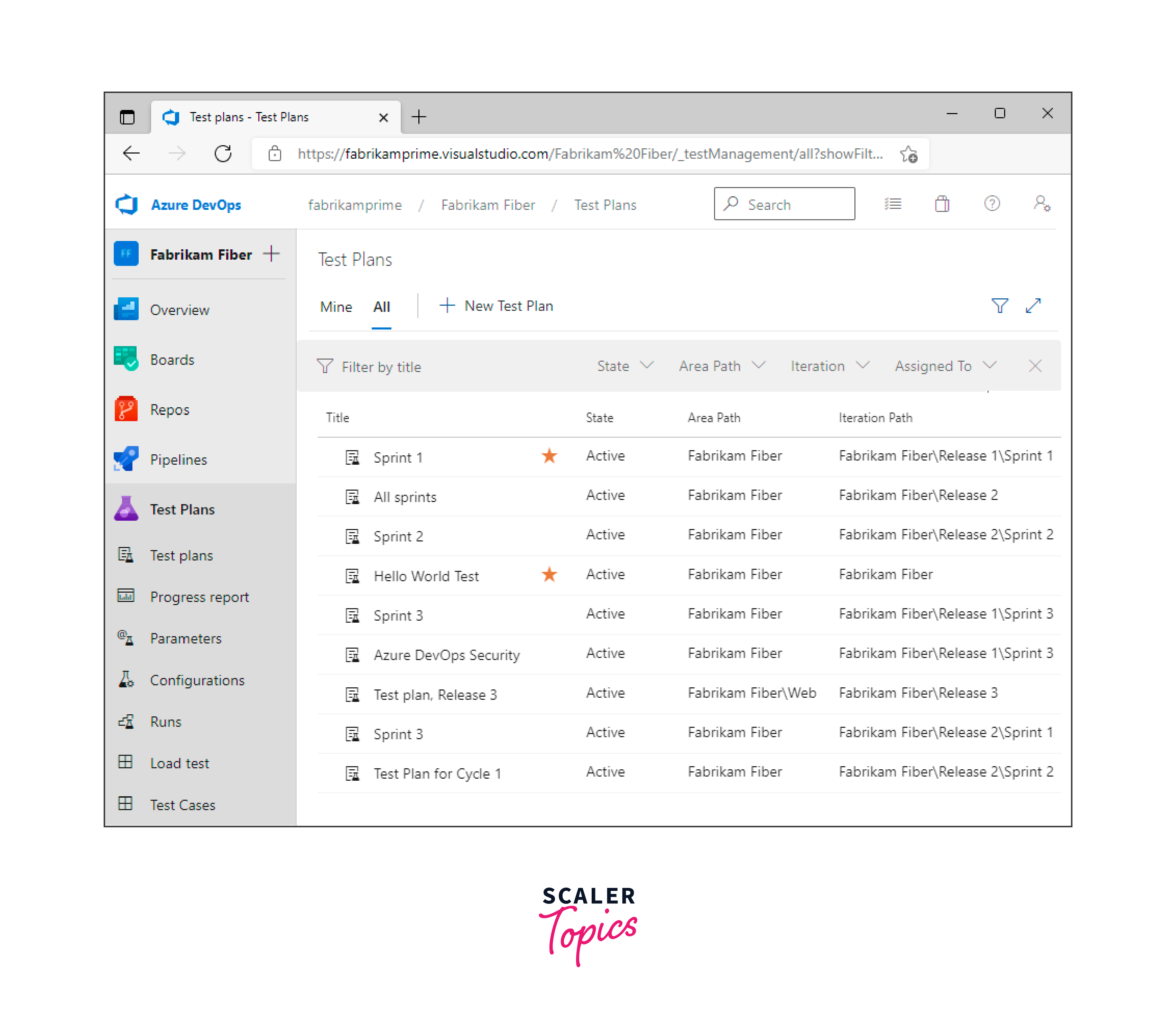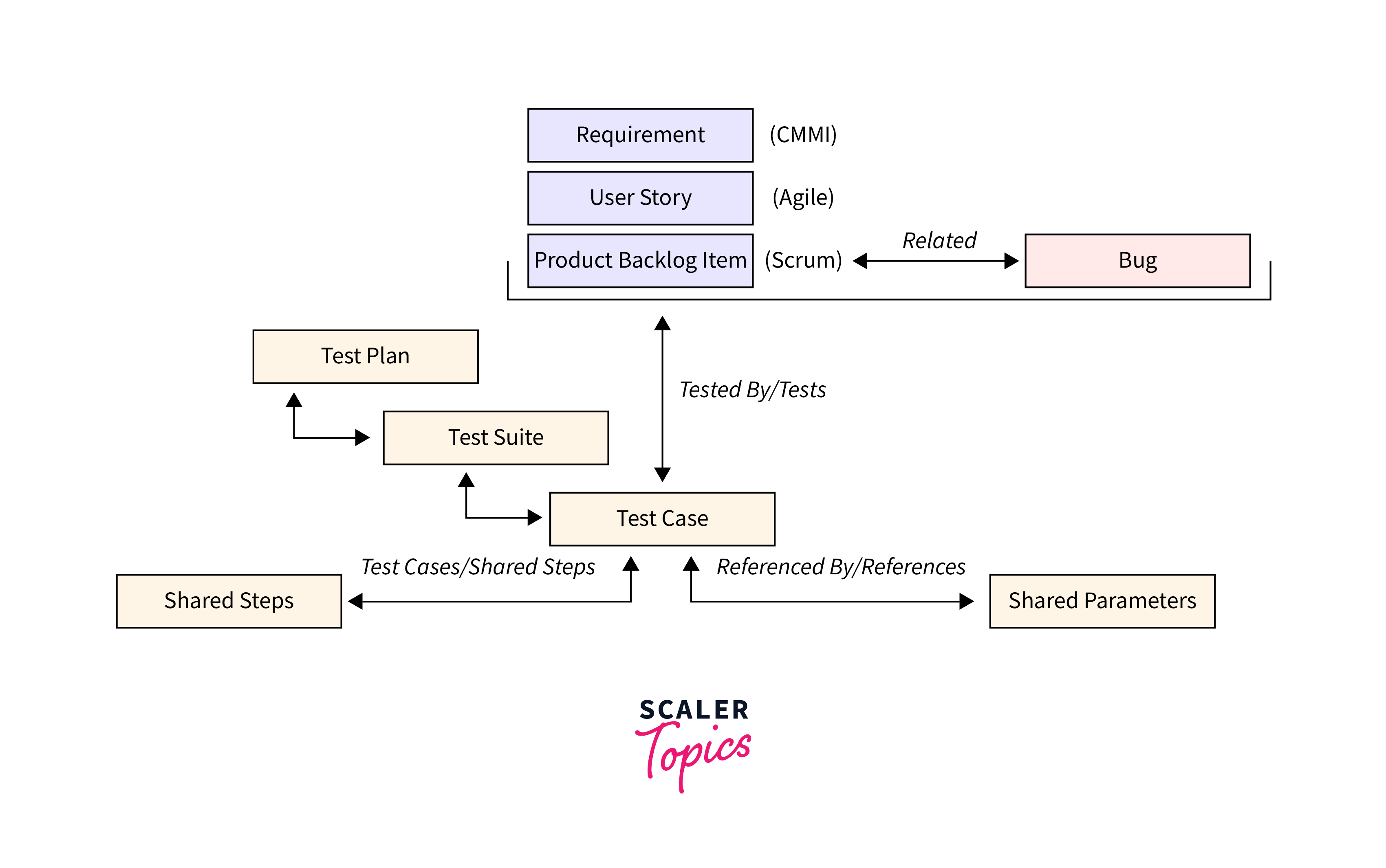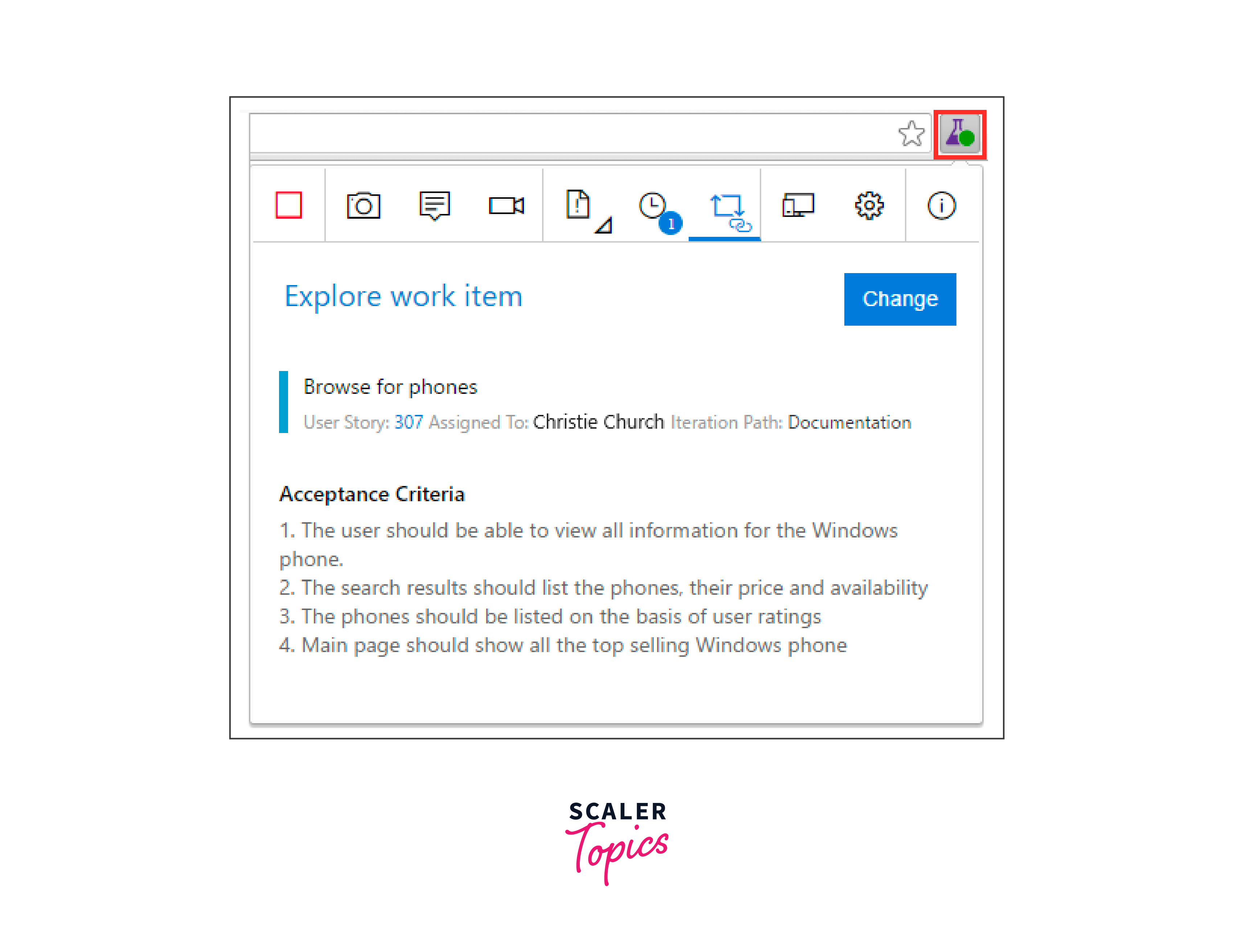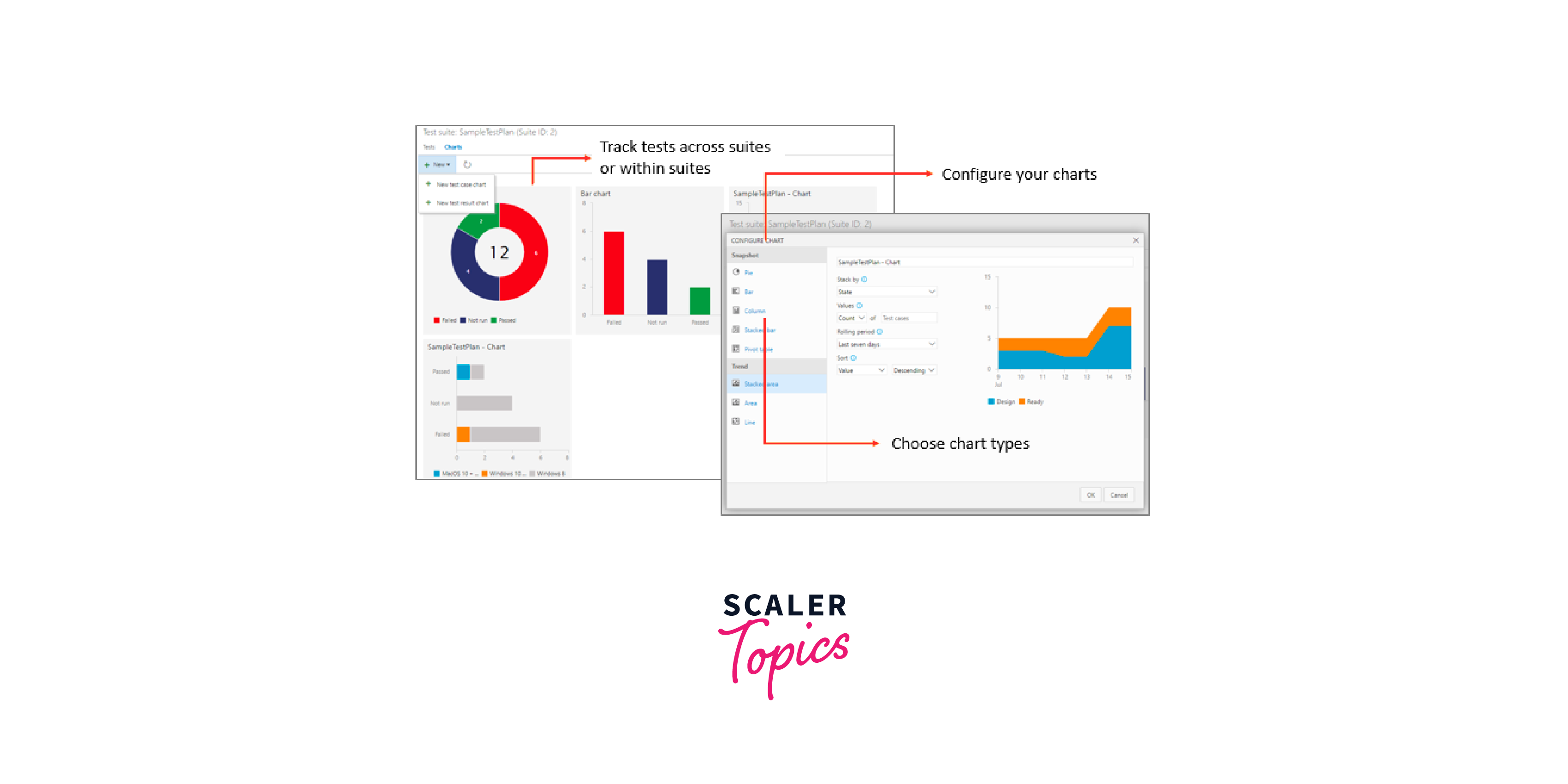Azure Test Plans
Overview
In today's rapidly evolving tech landscape, Azure Test Plans stand out as a comprehensive, cloud-based solution for ensuring software quality. As a pivotal component of Azure DevOps, Azure Test Plans offer a versatile platform for both manual and automated testing. They streamline the testing process, ensuring thorough coverage and integration with the CI/CD pipeline. With capabilities ranging from detailed test case management to exploratory testing, Azure Test Plans provide the tools necessary for teams to deliver reliable and high-quality software in an efficient and traceable manner.
What are Azure Test Plans?
Azure Test Plans are a fundamental component of the Azure DevOps suite, specifically designed to meet the growing demand for structured and efficient software testing. These plans serve as a powerful set of tools, enabling development teams to meticulously plan, execute, and monitor the testing process. By embracing the cloud-based advantages of Azure, this platform empowers teams to maintain and enhance software quality throughout the development lifecycle.

Azure Test Plans provide a centralized hub for creating and organizing test plans and test suites, which comprise collections of test cases. These test plans serve as roadmaps for the testing journey, ensuring that all critical aspects of an application are thoroughly vetted.
How does Azure Test Plans Work?
Azure Test Plans operate as a pivotal component of the Azure DevOps suite, facilitating a structured and streamlined approach to software testing. These plans function through a series of interconnected steps and features, ensuring that testing is comprehensive, efficient, and integrated seamlessly with the development process.
-
Test Plan and Test Suite Creation:
Azure Test Plans provide a centralized platform for creating, organizing, and managing test plans and test suites, allowing teams to structure their testing efforts efficiently.
-
Integration with CI/CD Pipelines:
These test plans seamlessly integrate with Azure DevOps build and release pipelines, ensuring continuous testing as part of the CI/CD process, resulting in faster and more reliable software deployment.
-
Manual Testing Capabilities:
Teams can create detailed test cases and execute them manually, offering a structured approach to validate various application scenarios.
-
Exploratory Testing:
Azure Test Plans facilitate unscripted exploratory testing, enabling testers to capture and document findings on the fly, ensuring comprehensive coverage.
-
Automated Testing Support:
The platform supports the integration of automated tests written in various frameworks, optimizing efficiency and consistency in testing.
-
Traceability:
Azure Test Plans enable the linkage of test cases to work items, fostering traceability and accountability, ensuring that all requirements are thoroughly tested.
-
Comprehensive Reporting and Analysis:
Robust reporting and analytics tools offer insights into test coverage, pass/fail rates, and other essential metrics, aiding in data-driven decision-making.
Manual and Exploratory Testing
Azure Test Plans offer robust tools and capabilities for both manual and exploratory testing, enabling teams to ensure thorough coverage and quality assurance of their software applications. These features cater to diverse testing needs, providing flexibility and adaptability in the testing process.
Manual Testing
Manual testing in Azure Test Plans involves the creation and execution of test cases by testers following specified steps and scenarios. This method is crucial for validating user interfaces, user experiences, and other aspects that require human judgment and intervention.
-
Test Case Creation:
Testers can create detailed test cases within Azure Test Plans, outlining the steps, expected results, and any prerequisites for each test. These test cases serve as structured guidelines for conducting the tests.
-
Execution and Documentation:
During manual testing, testers execute the steps outlined in the test cases and document the outcomes. Azure Test Plans allow for the recording of pass/fail statuses and the addition of notes or screenshots to capture evidence of the testing process.

-
Flexibility and Coverage:
Manual testing in Azure Test Plans provides the flexibility to cover scenarios that might be difficult to automate. It ensures that applications are evaluated from a user's perspective, leading to more intuitive and user-friendly software.
Exploratory Testing
Exploratory testing, another critical aspect of Azure Test Plans, is a less structured approach that allows testers to investigate and discover defects or issues in real-time without predefined test cases.
-
Unscripted Testing:
In exploratory testing, testers explore the application, trying different inputs, navigating various paths, and experimenting with different scenarios. This approach is particularly effective for uncovering unexpected bugs or usability issues.

-
Real-Time Documentation:
As testers explore, they can document their findings, capture screenshots, and record notes directly within Azure Test Plans. This real-time documentation ensures that insights and defects are captured accurately and promptly.
-
Adaptability and Creativity:
Exploratory testing in Azure Test Plans fosters creativity and adaptability, encouraging testers to think outside the box and identify potential issues that scripted testing might overlook.
Test Execution and Test Tools
Azure Test Plans provide a seamless and robust environment for test execution, complemented by a suite of powerful test tools. This combination ensures that teams can efficiently carry out testing activities and leverage advanced functionalities to enhance the testing process.
Test Execution in Azure Test Plans
-
Organized Test Runs:
Azure Test Plans allow teams to organize and execute test runs systematically. Testers can select specific test cases or suites to run, and these can be executed against different configurations and environments, ensuring comprehensive coverage.
-
Detailed Execution Records:
During test execution, testers can record detailed outcomes for each test step, including pass/fail statuses, comments, and attachments. This meticulous documentation is crucial for traceability and analysis.
-
Integrated Environment:
Test execution in Azure Test Plans is integrated with the broader Azure DevOps environment. This integration facilitates seamless transitions between development, testing, and deployment, enhancing the efficiency of the CI/CD pipeline.
Test Tools in Azure Test Plans
-
Web-Based Test Runner:
Azure Test Plans feature a web-based test runner that guides testers through each step of the test case. It provides an interactive interface where testers can mark outcomes, add notes, and attach evidence such as screenshots or videos.
-
Exploratory Testing Extension:
For exploratory testing, Azure Test Plans offer a browser extension that allows testers to capture notes, screenshots, and even videos as they explore the application. This tool is instrumental in documenting findings during unscripted testing sessions.
-
Integration with Automated Testing Tools:
Azure Test Plans support integration with various automated testing tools and frameworks.
Automated Testing
Azure Test Plans support a comprehensive automated testing framework, allowing seamless integration with popular tools like Selenium, JUnit, and MSTest. This integration empowers teams to incorporate automated tests into their test plans, facilitating a harmonious blend of manual and automated testing for thorough coverage. Automated tests can be scheduled within the CI/CD pipeline, offering real-time feedback and significantly enhancing testing efficiency and consistency.
The platform enables parallel execution of automated tests, reducing overall testing time and accommodating scalability as project complexity grows. Post-execution, Azure Test Plans provide detailed test results and analytics, enabling teams to analyze trends, identify issues, and make data-driven improvements. Additionally, test results can be linked to work items, ensuring traceability and alignment with project objectives. Through these features, automated testing in Azure Test Plans emerges as a vital tool for achieving higher software quality and more efficient development processes.
Traceability
Azure Test Plans excel in providing traceability, a crucial aspect of the testing process. The platform enables the linkage of test cases to work items, such as user stories or requirements. This connection ensures that every aspect of the software development process is thoroughly tested and aligned with the project's objectives. Traceability helps in maintaining a clear record of what has been tested, the outcomes, and any areas that require further attention.
Enhancing this traceability, Azure Test Plans also allow linking of automated test results to these work items. This feature provides a comprehensive view of testing progress and coverage, ensuring that no requirement is left untested.
Reporting and Analysis
Reporting and analysis are pivotal features in Azure Test Plans, providing teams with deep insights into the testing process. The platform offers a suite of robust reporting tools that generate detailed reports on test execution, coverage, and trends. These reports include critical metrics such as pass/fail rates, test progress over time, and areas with high defect density. Such comprehensive reporting enables teams to pinpoint weaknesses, understand testing effectiveness, and make data-driven decisions.

Security and Compliance
Security and compliance are paramount in Azure Test Plans, ensuring that testing data is protected and regulatory standards are met. The platform adheres to rigorous security measures, including encryption of data in transit and at rest, and follows industry best practices for data protection. For organizations in regulated industries, Azure Test Plans align with various compliance standards, such as ISO 27001, HIPAA, and GDPR, providing assurance that testing activities comply with stringent security and privacy requirements.
Common Challenges and Solutions
While Azure Test Plans offer a robust testing framework, teams may encounter challenges such as integration complexities or managing large volumes of test data. A common solution for integration issues is leveraging Azure DevOps' extensive documentation and support community, which can provide guidance and best practices. For managing large test suites, teams are encouraged to regularly review and prioritize test cases, and utilize Azure Test Plans' capabilities for categorizing and filtering tests. This approach ensures a more manageable and focused testing process, enhancing overall efficiency and effectiveness.
Conclusion
- Azure Test Plans provide a complete and integrated solution for managing and executing both manual and automated tests, catering to diverse testing needs.
- The platform's support for automated testing, coupled with CI/CD integration, significantly boosts testing efficiency and consistency, facilitating faster software development cycles.
- With robust reporting and analysis tools, Azure Test Plans offer valuable insights into test coverage and outcomes, aiding teams in making informed decisions and continuously improving quality.
- The traceability features in Azure Test Plans ensure a clear link between testing efforts and project requirements, enhancing accountability and ensuring comprehensive coverage.
- Azure Test Plans are adaptable to various testing methodologies and scalable to meet the demands of growing projects, making them a versatile choice for organizations of all sizes.
